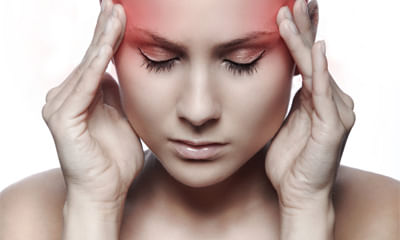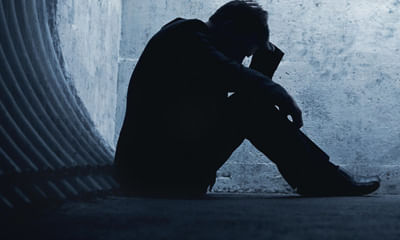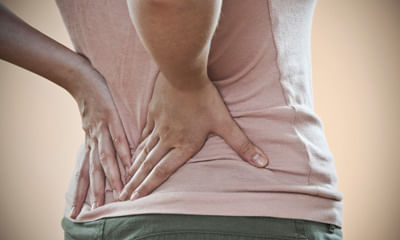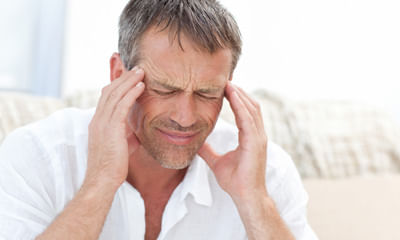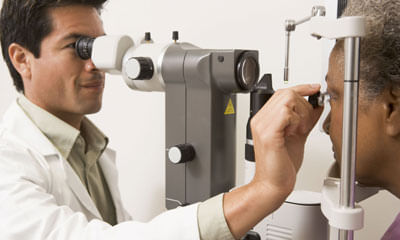Does Depression Make You Forgetful
I am 17 years old I sleep more than normal hours inspite of this I need to sleep after waking up I feel low all the time ...
Ask Free Question
What is your age? Since when r you having this? What r other symptoms that you r experiencing? By doing what like walking, exertion, eating or empty stomach- it increases or decreases in intensity. For how much time it remains? Is there stiffness also? How is your appetite? R you constipated or having loose stools? Any problem in urine? I need details of the case.in the meanwhile follow this 1. Take your breakfast every day. Don't skip it. U should eat whatever your mother or grandparent eat in bfast. I mean to say whatever is your traditional food. If punjabi eat paratha, if belongs to south then take idli/ dosa etc. 2. Don't overeat 3. Don't take tea empty stomach. Eat something like a banana (if you are not diabetic) or any seasonal fruit or soaked almonds and a glass of plain water first thing in the morning (preferably within 10 mins of waking up). No only biscuits or rusk will not do. 4. Have light meals every 2 hours (in addition to your breakfast, lunch n dinner) e.g. Nariyal paani, chaach, a handful of mixed dry fruits, a handful of peanuts, any fresh n seasonal fruit (eat whole fruit not juice), a cup of curd/milk etc 5. Take simple food like rice n dal in dinner. Finish your dinner at least 2 hours before going to sleep. 6. Maintain active life style 7. Avoid fast foods, spicy n fried foods, carbonated beverages 8. Take a lot of green vegetables n fruit. 9. Drink lot of water. 10. Everyday preferably sleep on same time 11. Take 1tsp of ghee in bfast, lunch n dinner. Exercise in the form of yoga, cycling, swimming, gym etc. Till lock down do suryanamaskar. Https://www.youtube.com/watch? V=wmhmazurgvsandfeature=youtu. Be homeopathy is a very effective for this problem n has very encouraging results. For details, consult online.
I am 19 year old neet aspirant I lost internet in study for last 4 months .i want to become doctor .but I am feeling wor ...
Ask Free Question
vaishnavi, just remember that you are not alone. This guilt, depression and self harm is happening to others also who are in situations of stress. You are in the middle of studies so it is natural that you are tensed. I suggest you talk to your parents and seek the advice of a counselor. Do not delay in seeking guidance. Just have faith that everything will be fine. God bless you.
I am 17 year old female. Recently,from 2 months I am suffering from memory loss. I forget things very quickly and also h ...
Ask Free Question
Other than baryta carb there are many meds depending on the cause. You may try baryta carb. In addition you may follow the following tips: 1. Be physically active every day physical activity raises blood flow to the whole body, including the brain. This might help keep your memory sharp. For most healthy adults, the department of health and human services recommends at least 150 minutes a week of moderate aerobic activity, such as brisk walking, or 75 minutes a week of vigorous aerobic activity, such as jogging. It's best if this activity is spread throughout the week. If you don't have time for a full workout, try a few 10-minute walks throughout the day. 2. Stay mentally active just as physical activity keeps your body in shape, activities that engage your mind help keep your brain in shape. And those activities might help prevent some memory loss. Do crossword puzzles. Read. Play games. Learn to play a musical instrument. Try a new hobby. Volunteer at a local school or with a community group. 3. Spend time with others social interaction helps ward off depression and stress. Both of those can contribute to memory loss. Look for opportunities to get together with loved ones, friends and other people, especially if you live alone. 4. Stay organized you're more likely to forget things if your home is cluttered or your notes are in disarray. Keep track of tasks, appointments and other events in a notebook, calendar or electronic planner. You might even repeat each entry out loud as you write it down to help keep it in your memory. Keep to-do lists up to date. Check off items you've finished. Keep your wallet, keys, glasses and other essential items in a set place in your home so they are easy to find. Limit distractions. Don't do too many things at once. If you focus on the information that you're trying to remember, you're more likely to recall it later. It also might help to connect what you're trying to remember to a favorite song or a familiar saying or idea. 5. Sleep well not getting enough sleep has been linked to memory loss. So has restless sleep and sleep that gets disturbed often. Make getting enough healthy sleep a priority. Adults should sleep 7 to 9 hours a night on a regular basis. If snoring disrupts sleep, make an appointment to see your health care provider. Snoring could be a sign of a sleep disorder, such as sleep apnea. 6. Eat a healthy diet a healthy diet is good for your brain. Eat fruits, vegetables and whole grains. Choose low-fat protein sources, such as fish, beans and skinless poultry. What you drink also counts. Too much alcohol can lead to confusion and memory loss. 7. Manage chronic health problems follow your health care provider's advice for dealing with medical conditions, such as high blood pressure, diabetes, depression, hearing loss and obesity. The better you take care of yourself, the better your memory is likely to be. Regularly review the medicines you take with your health care provider. Some medicines can affect memory. For further evaluation and treatment consult online in private.
So I was diagnosed with mixed anxiety, type 2 depression and ocd and tics and have been on multiple meds since last 1 ye ...
Ask Free Question
Doses need to be titrated as all of the anti OCD medications are also antidepressants. Apart from that you need exercise regularly so that your body also naturally tries to cope with depression by releasing endorphins during exercise. Endorphins are natural antidepressants and make mood better. Avoid caffeinated drinks as they will worsen anxiety and depression. Do some breathing exercises and relaxation techniques.
From 4-5 year I have 24 hour full body pain and fatigue and all tests are normal. 4-5 months ago aiims doctor diagnosed ...
Ask Free Question
Also called: fibrositis self-carephysical exercise aerobic activity for 20–30 minutes 5 days a week improves cardiovascular health. If injured, pursuing an activity that avoids the injured muscle group or joint can help maintain physical function while recovering. Stress management pursuing an enjoyable activity or verbalising frustration to reduce stress and improve mental health. Relaxation techniques deep breathing, meditation, yoga, rhythmic exercise and other activities that reduce symptoms of stress hydrotherapy using water to relieve pain, treat diseases and maintain health. For example, mineral baths and hot tubs. Stretching stretching exercises can improve flexibility and improve physical function. Graded exercise therapy physical exercise that starts very slowly and gradually increases over time. Massage relaxes tense muscles. Heat therapy using heat is an excellent way to help relax muscles and encourage blood flow to areas that are particularly painful. This can easily be done at home using dry or damp hot towels. Simply hold the towel against the affected area until you feel relief. Ultrasound an ultrasound uses sound waves to produce heat which improves blood flow to deep muscle tissue. It can be used to relieve pain, stiffness, spasms, and inflammation widespread muscle pain and tenderness. Symptoms requires a medical diagnosis widespread muscle pain and tenderness are the most common symptoms. People may experience: pain areas: in the muscles, abdomen, back, or neck pain types: can be chronic, diffuse, sharp, or severe pain circumstances: can occur at night gastrointestinal: constipation, nausea, or passing excessive amounts of gas whole body: fatigue, feeling tired, or malaise muscular: muscle tenderness, delayed onset muscle soreness, or muscle spasms sensory: pins and needles, sensitivity to cold, or sensitivity to pain mood: anxiety, mood swings, or nervousness sleep: difficulty falling asleep or sleep disturbances cognitive: forgetfulness or lack of concentration hand: sensation of coldness or tingling also common: depression, flare, headache, irritability, joint stiffness, painful menstruation, or tingling feet treatment consists of self care and therapy medication, talk therapy and stress reduction may help in controlling the symptoms. Self-carephysical exercise aerobic activity for 20–30 minutes 5 days a week improves cardiovascular health. If injured, pursuing an activity that avoids the injured muscle group or joint can help maintain physical function while recovering. Stress management pursuing an enjoyable activity or verbalising frustration to reduce stress and improve mental health. Relaxation techniques deep breathing, meditation, yoga, rhythmic exercise and other activities that reduce symptoms of stress therapies support group a forum for counseling and sharing experiences among people with a similar condition or goal, such as depression or weight loss. Biofeedback controlling the body's heartbeat, brainwaves, breathing and blood pressure by monitoring them with sensors. Cognitive behavioral therapy a talk therapy focused on modifying negative thoughts, behaviours and emotional responses associated with psychological distress. Hydrotherapy using water to relieve pain, treat diseases and maintain health. For example, mineral baths and hot tubs. Chiropractic treatment techniques adjusting the spine and massaging the back muscles to relieve pain. Stretching stretching exercises can improve flexibility and improve physical function. Graded exercise therapy physical exercise that starts very slowly and gradually increases over time. Massage relaxes tense muscles. Acupuncture insertion of needles into specific points on the body to relieve pain and treat other conditions. A form of traditional chinese medicine. Medications selective serotonin reuptake inhibitor (ssri) eases symptoms of depressed mood and anxiety. Analgesic relieves pain. Nonsteroidal anti-inflammatory drug relieves pain, decreases inflammation and reduces fever. Nerve pain medication blocks pain caused by damaged nerves. Muscle relaxant reduces muscle tension and helps relieve muscle pain and discomfort. Fibromyalgia medications can help reduce the pain of fibromyalgia and improve sleep. Common choices include: •pain relievers. Over-the-counter pain relievers such as acetaminophen (tylenol, others), ibuprofen (advil, motrin ib, others) or naproxen sodium (aleve, others) may be helpful. Your doctor might suggest a prescription pain reliever such as tramadol (ultram). Narcotics are not advised, because they can lead to dependence and may even worsen the pain over time. •antidepressants. Duloxetine (cymbalta) and milnacipran (savella) may help ease the pain and fatigue associated with fibromyalgia. Your doctor may prescribe amitriptyline or the muscle relaxant cyclobenzaprine to help promote sleep. •anti-seizure drugs. Medications designed to treat epilepsy are often useful in reducing certain types of pain. Gabapentin (neurontin) is sometimes helpful in reducing fibromyalgia symptoms, while pregabalin (lyrica) was the first drug approved by the food and drug administration to treat fibromyalgia. Therapy a variety of different therapies can help reduce the effect that fibromyalgia has on your body and your life. Examples include: •physical therapy. A physical therapist can teach you exercises that will improve your strength, flexibility and stamina. Water-based exercises might be particularly helpful. •occupational therapy. An occupational therapist can help you make adjustments to your work area or the way you perform certain tasks that will cause less stress on your body.
I am suffering short term memory loss since 3 years and now it is getting worst than ever. How can I get rid out of it? ...
Ask Free Question
1. Include physical activity in your daily routine physical activity increases blood flow to your whole body, including your brain. This might help keep your memory sharp. For most healthy adults, the department of health and human services recommends at least 150 minutes a week of moderate aerobic activity, such as brisk walking, or 75 minutes a week of vigorous aerobic activity, such as jogging — preferably spread throughout the week. If you don't have time for a full workout, squeeze in a few 10-minute walks throughout the day. 2. Stay mentally active just as physical activity helps keep your body in shape, mentally stimulating activities help keep your brain in shape — and might keep memory loss at bay. Do crossword puzzles. Play bridge. Take alternate routes when driving. Learn to play a musical instrument. Volunteer at a local school or community organization. 3. Socialize regularly social interaction helps ward off depression and stress, both of which can contribute to memory loss. Look for opportunities to get together with loved ones, friends and others — especially if you live alone. 4. Get organized you're more likely to forget things if your home is cluttered and your notes are in disarray. Jot down tasks, appointments and other events in a special notebook, calendar or electronic planner. You might even repeat each entry out loud as you jot it down to help cement it in your memory. Keep to-do lists current and check off items you've completed. Set aside a place for your wallet, keys, glasses and other essentials. Limit distractions and don't do too many things at once. If you focus on the information that you're trying to retain, you're more likely to recall it later. It might also help to connect what you're trying to retain to a favorite song or another familiar concept 5. Sleep well sleep plays an important role in helping you consolidate your memories, so you can recall them down the road. Make getting enough sleep a priority. Most adults need seven to nine hours of sleep a day. 6. Eat a healthy diet a healthy diet might be as good for your brain as it is for your heart. Eat fruits, vegetables and whole grains. Choose low-fat protein sources, such as fish, beans and skinless poultry. What you drink counts, too. Too much alcohol can lead to confusion and memory loss. So can drug use. 7. Manage chronic conditions follow your doctor's treatment recommendations for medical conditions, such as depression, high blood pressure, high cholesterol, diabetes, obesity and hearing loss. The better you take care of yourself, the better your memory is likely to be. In addition, review your medications with your doctor regularly. Various medications can affect memory. For further evaluation and treatment consult online in private.
Stress tension muscle pain headache problem, I am an epilepsy patients medicine continue selzic od 600, desval er 500, c ...
Ask Free Question
Dear lybrate-user, muscle pain and headache may be due to stress; tension regarding your disease---to relieve these--you first accept your problem and compare yourself with people having more severe problems like kidney failure ; cancer etc--your problem can be well controlled and you can have a fruitful normal life if you start accepting the guidelines below and living accordinglymobileyour treatment is to start with lifestyle changes ----- you make a healthy schedule of daily activities with correct timings for sleeping; working ; eating ; entertainments ; exercise ;yoga ; meditation ; prayers ; social and religious activities and then -- strictly follow the schedule --- booster your mental health by increasing positive mental energy by 1- always smiling 2- help; support ; encourage and appreciate your family members; neighbors ; colleagues --- by observing them continuously----- 3-reduce your negative mental energy like anger ; anxiety ; fear ; depression ; jealousy ; selfishness etc. By being philosophical about our momentary journey ----life of maximum 40000 days --in this beautiful world --where we forget to enjoy the good things-- due to our passion for sincerity ;greed for possessions ; selfish interests etc. -- just make happiness to your fellow passengers like your parents; wife; children; neighbors; colleagues and accrue positive energy in your soul ---which is the only item which we can take from this world when we are going finally. So you make a diary of your good and bad deeds daily and make sure that the good deeds are more every day mobileyou sleep --only after making this diary notes --you tabulate your monthly balance and see that it is positive and such numbers are increasing------- now let us look at your daily food menu --- take about 300 gm of fresh vegetables and glv and fruits before your lunch and dinner daily as fresh salads or fresh juice. Drink 12-14 glasses of water /fluids daily / restrict oily; fried ; fatty ; junk ; fast food items and colas and take maximum ethnic vegetarian food // take food in small quantity at frequent intervals // don't take food during your screen time // take your dinner before 8 pm //restrict your food in dinner parties and lunch parties //avoid alcohol and smoking ;drugs // restrict your screen time to 3 hours daily // if you are a computer professional ---take 5 minutes of rest every 1 hour at computer --go round in office --chit chat or look at distance -wash face and come back to work ---- sleep for 8 hours daily --that also at fixed timings --if your work permits // have any type of entertainment for 1 hour daily // keep regular fixed time for passing stool -twice daily ; passing urine every 3-4 hours; brushing teeth twice daily and taking bath twice daily. Do exercise for 30 minutes daily --like walking; cycling ; swimming etc. // do yoga; pranayama ; meditation for 20 minutes daily //have prayers for 20 minutes daily --if you are a believer. After starting a daily schedule of your activities with the above advice and continuing for 2 months --you assess-- by yourself-- about the health problems still remaining --continue your treatment for epilepsy promptly with regular check-up by your doctor-//-for stress; depression ;pain etc --you may have a check-up by a psychiatrist-psychologist-psychosocial worker team at a good hospital and continue their treatment .//also continue with the lifestyle changes which you had started 2 months ago---ok --
I lost my father in 2015 and sister in 2021 and break up with long term boyfriend in same month of 2021. After that when ...
Ask Free Question
Hi, I understand your concern. This is a mere stress induced depression. First thing you need to do is please get an psychologist consultation and simultaneously psychiatrist consultation. It will take little long but you are sure to get out of it with determination. Past cannot be repaired and it should not reflect on your present and future. Make your mind a beautiful garden to new sprind n buds to bloom. Warm wishes.
Hi sir, pradeep here form bangalore, I am currently 33 years old unmarried with no peace in life for the past 8 months d ...
Ask Free Question
Answer—i have gone through your details of health problems -- having stress regarding physical symptoms ; fits; palpitations ; gastro-intestinal and neuralgic type of symptoms –with anxiety –are your health problems--in this background you requires treatment including sessions by psychiatrist—psychologist—psycho-social worker team ; cardiologist ; gastroenterologist and neurologist along with efforts from your side for lifestyle changes as described below- from your explanation --i feel that your problems are related to stopping medicines at your own level with out advice from the docyor ---especially for fits ;uncontrolled and irregular daily schedule of activities ---with anxiety and desire for achieving targets and overstrain and overwork ----all these leading to palpitation ;depression ; stomach upset; neuralgia etc. So your treatment is to start with lifestyle changes ----- you make a healthy schedule of daily activities with correct timings for sleeping; working ; eating ; entertainments ; exercise ;yoga ; meditation ; prayers ; social and religious activities and then -- strictly follow the schedule --- booster your mental health by increasing positive mental energy by 1-convincing yourself that you have no major cardiac or deadly disease and there are people around you who are suffering more than you and need your help – like poor cancer; kidney patients. Still some of them are always smiling ; helping; supporting ; encouraging and appreciating others upto their last breathe —read stories of such people –which are coming in media and you try to do the same--- to your family members; neighbors ; colleagues –and poor patients in cancer wards etc -- ----- 2---reduce your negative mental energy like anger ; anxiety ; fear ; depression ; jealousy ; selfishness etc. By being philosophical about our momentary journey of-life--- of maximum 40000 days --in this beautiful world --where we forget to enjoy the good things-- due to our passion for sincerity ;over anxiety about own health ; status etc and greed for possessions ; selfish interests etc. -- just smile and try to make happiness to your fellow passengers like your parents; wife; children ; neighbors; colleagues and try to forget your health problems --at least for few hours daily & accrue positive energy in your soul ---which is one of the best medicines for your problems and the only item which we can take from this world ---when we are going finally.mobile so you make a diary of your good and bad deeds daily and make sure that the good deeds are more every day -----you sleep --only after making this diary notes --you tabulate your monthly balance and see that it is positive --- --- now let us look at your daily food menu --- take about 300 gm of fresh vegetables and glv and fruits before your lunch and dinner daily as fresh salads or fresh juice. Drink 12-14 glasses of water /fluids daily / restrict oily; fried ; fatty ; junk ; fast food items and avoid colas; alcohol ; tobacco and drugs and take maximum ethnic vegetarian food // take food in small quantity at frequent intervals // don't take food during your screen time // take your dinner before 8 pm //restrict your food in dinner parties and lunch parties / // restrict your screen time to 3 hours daily // if you are a computer professional ---take 5 minutes of rest every 1 hour at computer --go round in office --chit chat or look at distance -wash face and come back to work ---- sleep for 8 hours daily --that also at fixed timings --if your work permits // have any type of entertainment for 1 hour daily // keep regular fixed time for passing stool -twice daily ; passing urine every 3-4 hours; brushing teeth twice daily and taking bath twice daily. Do exercise for 30 minutes daily --like walking; cycling; swimming etc. // do yoga; pranayama ; meditation for 20 minutes daily //have prayers for 20 minutes daily --if you are a believer. After starting a daily schedule of your activities with the above advice and continuing for 2 months --you assess-- by yourself-- about the health problems still remaining ---like palpitation ; fits ;anxiety etc and go to a good hospital like cmc; vellore ----meet a group of good psychiatrist—psychologist – psycho social worker team; cardiologist ; gastroenterologist ; neurologist as per your main problems--- take treatment as they instructs and continue the new lifestyle which you have strated 2 months ago ---as detailed above -- --thank you for your question ----which explains the problems of many people at present----.wish you all the best.
I am feeling fatigue from past 1-2 months, little weakness and less energetic in work. Kindly suggest some solutions. ...
Ask Free Question
Dear Mr. lybrate-user, fatigue is a very common symptom of most incections ;organ related problems ; nutrition problems ;psychological and psychiatric and psycho somatic problems -so your treatment is to start with lifestyle changes ----- you make a healthy schedule of daily activities with correct timings for sleeping; working ; eating ; entertainments ; exercise ;yoga ; meditation ; prayers ; social and religious activities and then -- strictly follow the schedule --- booster your mental health by increasing positive mental energy by 1- always smiling 2- help; support ; encourage and appreciate your family members; neighbors ; colleagues --- by observing them continuously----- 3-reduce your negative mental energy like anger ; anxiety ; fear ; depression ; jealousy ; selfishness etc. By being philosophical about our momentary journey ----life of maximum 40000 days --in this beautiful world --where we forget to enjoy the good things-- due to our passion for sincerity ;greed for possessions ; selfish interests etc. -- just make happiness to your fellow passengers like your parents; wife; children; neighbors; colleagues and accrue positive energy in your soul ---which is the only item which we can take from this world when we are going finally. So you make a diary of your good and bad deeds daily and make sure that the good deeds are more every day mobileyou sleep --only after making this diary notes --you tabulate your monthly balance and see that it is positive and such numbers are increasing------- now let us look at your daily food menu --- take about 300 gm of fresh vegetables and glv and fruits before your lunch and dinner daily as fresh salads or fresh juice. Drink 12-14 glasses of water /fluids daily / restrict oily; fried ; fatty ; junk ; fast food items and colas and take maximum ethnic vegetarian food // take food in small quantity at frequent intervals // don't take food during your screen time // take your dinner before 8 pm //restrict your food in dinner parties and lunch parties //avoid alcohol and smoking ;drugs // restrict your screen time to 3 hours daily // if you are a computer professional ---take 5 minutes of rest every 1 hour at computer --go round in office --chit chat or look at distance -wash face and come back to work ---- sleep for 8 hours daily --that also at fixed timings --if your work permits // have any type of entertainment for 1 hour daily // keep regular fixed time for passing stool -twice daily ; passing urine every 3-4 hours; brushing teeth twice daily and taking bath twice daily. Do exercise for 30 minutes daily --like walking; cycling ; swimming etc. // do yoga; pranayama ; meditation for 20 minutes daily //have prayers for 20 minutes daily --if you are a believer. After starting a daily schedule of your activities with the above advice and continuing for 2 months --you assess-- by yourself-- about the health problems still remaining --if health problems still continues--have check-up with lab investigations by a good family physician with md in community medicine/family medicine and have treatment by cardiology/neurology/ gastro-enterology / pulmonology /psychiatry specialists --as per his advice ------ok.

